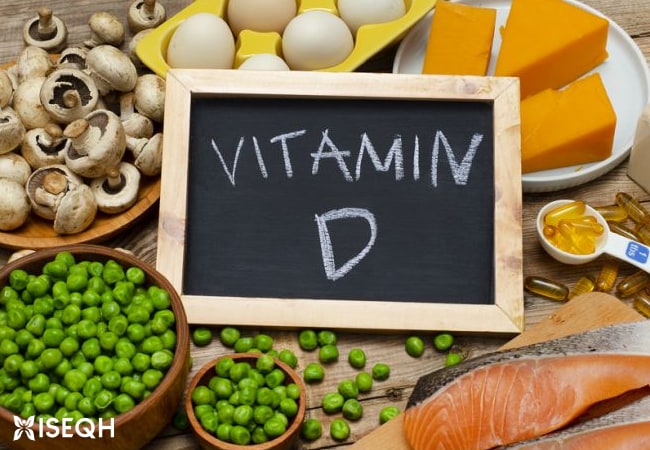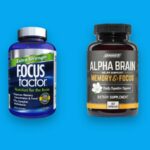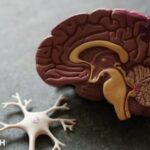
Table of Contents
Introduction
Vitamin D is a crucial nutrient that plays a vital role in maintaining overall health and well-being. It is also called the “sunshine vitamin” because our body can produce it when exposed to sunlight. However, many people don’t get enough Vitamin D, which can lead to various health problems. In this article, we will discuss what Vitamin D is, its importance, sources, deficiency, and how to get enough of it.
What is Vitamin D?
Vitamin D is a fat-soluble vitamin that is essential for the absorption and regulation of calcium and phosphorus in our body. There are two forms of Vitamin D – Vitamin D2 (ergocalciferol) and Vitamin D3 (cholecalciferol). Vitamin D2 is mainly found in plant-based foods, while Vitamin D3 is synthesized by our skin when exposed to sunlight.
The Importance of Vitamin D
Vitamin D is crucial for various functions in our body, including:
For Bone Health: Vitamin D is essential for bone health as it helps in the absorption and utilization of calcium and phosphorus. Without enough Vitamin D, bones can become thin, brittle, or misshapen.
For Immune System: Vitamin D plays a vital role in regulating the immune system and helps in fighting off infections and diseases.
For Brain Function: Studies have shown that Vitamin D is essential for brain development and cognitive function. Low levels of Vitamin D have been linked to depression, anxiety, and other mental health problems.
For Mood: Vitamin D is known to play a crucial role in regulating mood and preventing depression.
Sources of Vitamin D
There are three primary sources of Vitamin D:
Sunlight: Our body can produce Vitamin D when exposed to sunlight. However, the amount of Vitamin D produced depends on various factors such as time of day, skin color, geographical location, and use of sunscreen.
Food Sources: Some food sources of Vitamin D include fatty fish (such as salmon, tuna, and mackerel), egg yolks, mushrooms, and fortified foods (such as milk, cereal, and orange juice).
Supplements: Vitamin D supplements are also available in the form of pills, capsules, and drops.
Vitamin D Deficiency
Vitamin D deficiency is prevalent, especially in areas with limited sunlight exposure or in people with a poor diet. Some common symptoms of Vitamin D deficiency include:
- Fatigue
- Bone pain and muscle weakness
- Increased risk of fractures
- Weakened immune system
- Mood changes and depression
The causes of Vitamin D deficiency include
Limited Sun Exposure: People who spend most of their time indoors or cover their skin when outside are at a higher risk of Vitamin D deficiency.
Darker Skin: People with darker skin have more melanin, which reduces their skin’s ability to produce Vitamin D.
As we age, our skin’s ability to produce Vitamin D decreases, making older adults more prone to deficiency.
Obesity: People with a higher body mass index (BMI) may require more Vitamin D than others as the fat cells absorb Vitamin D and prevent it from circulating in the bloodstream.
Medical Conditions: Certain medical conditions such as Crohn’s disease, celiac disease, and kidney disease can affect the body’s ability to absorb Vitamin D.
Who is at Risk of Vitamin D Deficiency?
Some people are at a higher risk of Vitamin D deficiency, including:
People with limited sun exposure, such as those living in northern latitudes, institutionalized individuals, and those who work indoors.
People with darker skin as they have more melanin, which reduces the skin’s ability to produce Vitamin D.
Older adults as their skin’s ability to produce Vitamin D decreases with age.
Infants who are exclusively breastfed may not get enough Vitamin D as breast milk contains very little Vitamin D.
People with certain medical conditions that affect the absorption of Vitamin D.
How to Get Enough Vitamin D
There are various ways to get enough Vitamin D, including:
Sun Exposure: Spending some time outdoors in the sun can help our body produce enough Vitamin D. However, it is essential to balance sun exposure to avoid skin damage and skin cancer. Experts recommend 10-30 minutes of sun exposure without sunscreen during peak hours (10 am to 3 pm) a few times a week.
Diet: Consuming Vitamin D-rich foods such as fatty fish, egg yolks, and fortified foods can help increase Vitamin D levels. However, it may be difficult to get enough Vitamin D from food alone.
Supplements: Vitamin D supplements are available over the counter and can help increase Vitamin D levels. The dosage depends on age, health status, and the amount of Vitamin D needed.
Vitamin D Dosage and Safety
The recommended daily intake of Vitamin D varies based on age, health status, and other factors. The Institute of Medicine (IOM) recommends a daily intake of 400-800 IU of Vitamin D for most healthy adults.
Vitamin D toxicity is rare but can occur with excessive supplementation. Symptoms of Vitamin D toxicity include nausea, vomiting, constipation, and kidney damage. It is essential to follow the recommended dosage and consult a healthcare provider before taking Vitamin D supplements.
Conclusion
Vitamin D is a crucial nutrient for overall health and well-being. It plays a vital role in bone health, immune system, brain function, and mood regulation. Vitamin D deficiency is prevalent and can lead to various health problems. It is essential to get enough Vitamin D through sunlight, food sources, or supplements. Consulting a healthcare provider can help determine the appropriate dosage of Vitamin D and reduce the risk of toxicity.
FAQs
How long does it take for Vitamin D supplements to work?
It can take several weeks or months for Vitamin D supplements to increase the levels in the bloodstream.
Can you get too much Vitamin D from sunlight?
It is unlikely to get too much Vitamin D from sunlight as the skin regulates the amount produced based on exposure.
Can Vitamin D help prevent or treat COVID-19?
While some studies suggest that Vitamin D may have a role in preventing or treating COVID-19, more research is needed to confirm its effectiveness.
Is it safe to take Vitamin D supplements with other medications?
It is essential to consult a healthcare provider before taking Vitamin D supplements with other medications to avoid interactions.
Can Vitamin D deficiency be cured?
Vitamin D deficiency can be corrected with sufficient sunlight exposure, consumption of Vitamin D-rich foods, or supplementation. However, it is important to identify and address underlying causes of deficiency, such as medical conditions, to prevent recurrence.








